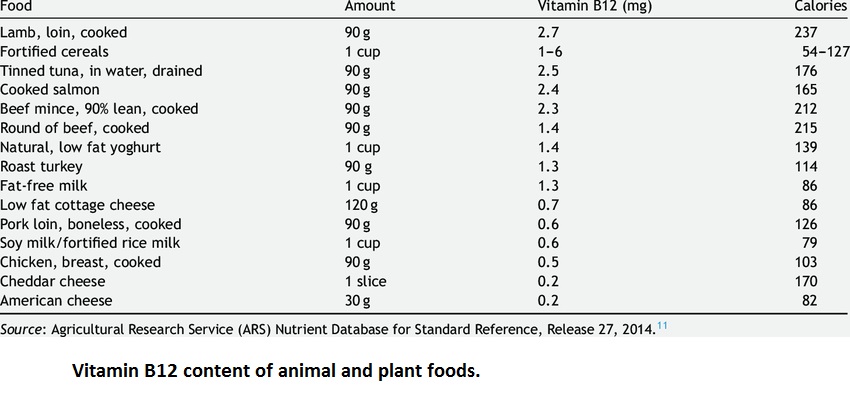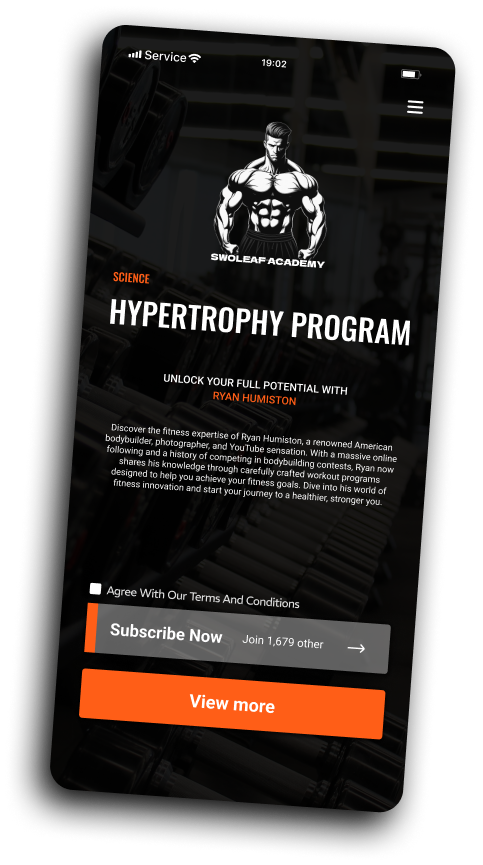Vitamin B 12, a water-soluble vitamin, is essential for the normal function of our body. The nervous system, red blood cell production and energy metabolism rely on this vitamin for their optimal functioning. Since the body does not store this vitamin, it is essential to obtain it regularly through dietary sources or supplements. Among older individuals aged 60 and above, the prevalence of vitamin D12 deficiency is higher affecting around 10% to 15 %. Vitamin B12 deficiency is often prevalent among people who have limited intake of animal products or have impaired absorption due to certain medical conditions. As such vegetarians and vegan people seem to have a higher risk of B12 deficiency.
Vitamin B12 deficiency can potentially have negative impacts on your health. It can cause a range of symptoms such as fatigue, weakness, pale skin, shortness of breath, cognitive difficulties and mood changes. The severe cases of deficiency can cause neurological problems such as memory loss and nerve damage. Vitamin B 12 deficiency is commonly linked to conditions that hinder its absorption such as pernicious anemia and gastrointestinal disorders.

Insufficient levels of vitamin B12 can result in various symptoms and have potential negative consequences for overall health. Some common signs of vitamin B12 deficiency include fatigue, weakness, pale skin, shortness of breath, dizziness, numbness or tingling in the hands and feet, cognitive difficulties and mood changes. In severe cases, it can cause neurological problems, such as difficulty walking, memory loss, and nerve damage. Vitamin B 12 deficiency is commonly linked to conditions that hinder its absorption such as pernicious anemia and gastrointestinal disorders.
Natural Sources Of Vitamin B12
- Animal-based food serves as the primary sources of vitamin B12. This includes beef, poultry, pork and lamb. Seafood sources that contain vitamin B 12 include salmon, trout, sardines, tuna, mussels and crab.
- Dairy Products such as milk, cheese and other dairy-derived foods are good sources of vitamin B12.
- Fortified Foods such as the cereals, plant-based milk, and nutritional yeast contain vitamin B12; however, it’s important to check the labels to ensure they contain vitamin B12. (Fig 5.2).

Benefits Of Vitamin B12
- Supports Red Blood Cell Formation: Vitamin B 12 plays a crucial role in the production of red blood cells responsible for oxygen transportation.
- Maintains Nervous System Health: Vitamin B 12 assists in the formation of the protective myelin sheath around nerve cells, facilitating optimal nerve function and communication.
- Supports Energy Metabolism: Vitamin B 12 plays a crucial role in the metabolism of amino acids and fatty acids which is essential for the body’s energy production.
- DNA Synthesis: Sufficient levels of vitamin B 12 are essential for the appropriate division and growth of cells. Vitamin B 12 is essential for the synthesis and maintenance of DNA, which is the genetic material found within cells.
- Promotes Brain Health: Vitamin B12 may help in preventing cognitive decline and reducing the risk of neurodegenerative disorders, such as dementia and Alzheimer’s disease.
- Supports Heart Health: Vitamin B12 is involved in the regulation of homocysteine, an amino acid linked to an increased risk of heart disease when levels are elevated. Sufficient intake of vitamin B12 helps in regulating homocysteine levels and supports cardiovascular health.
- Supports Mood and Mental Well-being: Vitamin B12 is involved in the production of neurotransmitters, such as serotonin and dopamine, which are important for regulating mood, sleep, and overall mental well-being. Maintaining sufficient levels of vitamin B12 can potentially enhance mood and decrease the likelihood of experiencing depression.

Risk of Vitamin B12 Deficiency in Bodybuilders and Athletes
Vitamin B12 deficiency can pose challenges for body builders and athletes impacting their energy levels, muscle function, exercise performance and recovery process. Here are some key points to understand the risks and potential consequences of vitamin B12 deficiency in this population:
- Reduced Energy Levels: Vitamin B12 is essential for energy production as it plays a crucial role in the metabolism of carbohydrates, proteins, and fats. Insufficient levels of vitamin B 12 can hinder the body’s ability to effectively convert these macronutrients into usable energy. As a result, they may experience decreased energy levels, leading to fatigue, reduced stamina, and diminished workout performance.
- Impaired Muscle Function: Insufficient levels of vitamin B12 can lead to impaired muscle function, resulting in decreased strength, endurance, and overall muscle performance. This can hinder progress in training, limit the ability to lift heavier weights or perform at peak levels, and compromise athletic performance.
- Decreased Exercise Performance: Vitamin B12 deficiency can negatively impact exercise performance in several ways. Reduced exercise performance can be attributed to inadequate energy production, impaired muscle function and compromised oxygen–carrying capacity resulting from decreased production of red blood cells. Athletes may experience decreased speed, endurance, and overall athletic abilities, making it challenging to achieve optimal results.
- Hindered Recovery: Adequate vitamin B 12 levels support muscle repair and growth by aiding in protein synthesis, benefiting body builders and athletes in their recovery process. Insufficient levels can hinder recovery, prolonging muscle soreness and impeding training progress.
To address the risks of vitamin B12 deficiency, bodybuilders and athletes should consider the following:
- Monitoring Vitamin B12 Levels: Regular blood tests to monitor vitamin B 12 levels can aid in the identification of deficiencies or inadequate levels. This can guide appropriate interventions and ensure adequate vitamin B12 intake.
- Dietary Sources and Supplementation: Vitamin B12 is primarily found in animal-based foods such as meat, fish, eggs, and dairy products. Strict vegetarian or vegan athletes have an elevated risk of vitamin B 12 deficiencies and may need to contemplate supplementation as a means to address this potential deficiency.
- Consultation with Healthcare Professionals: Athletes and bodybuilders should consult with healthcare professionals to assess their individual needs and develop a comprehensive plan to address vitamin B12 requirements. They can provide personalized guidance on supplementation, dosage, and monitoring based on specific health conditions, dietary preferences, and training goals.
Interactions Between Vitamin B12 And Other Supplements: Beneficial Or Harmful?
Vitamin B12 can interact with certain supplements, either enhancing their effects or potentially causing unwanted interactions. Here are some important interactions to be aware of:
- Folic Acid (Vitamin B9): Vitamin B12 and folic acid work together in the body, and a deficiency in one can mask the symptoms of a deficiency in the other. Supplementing with vitamin B12 may improve the effectiveness of folic acid supplements.
- Iron: Vitamin B12 deficiency can result in a type of anemia called megaloblastic anemia, which can also be caused by iron deficiency. Supplementing with both vitamin B12 and iron may be necessary for individuals with anemia due to both deficiencies.
- Vitamin C: Vitamin C can enhance the absorption of non-heme iron (found in plant-based foods), which may indirectly support vitamin B12 metabolism.
- Proton Pump Inhibitors (PPIs): PPIs, commonly used to treat acid reflux and stomach ulcers, can reduce the absorption of vitamin B12. For people on long-term PPI therapy, it is important to regularly monitor vitamin B12 levels and in some cases supplementation many be necessary.
It’s important to consult with a healthcare professional before taking any supplements or making changes to your supplement regimen. They can provide personalized advice based on your specific health needs and help ensure that the supplements you are taking are compatible and beneficial for your overall well-being.
Optimal Dosage and Timing For Vitamin B12 Intake
Dosage recommendations and timing of Vitamin B12 intake may vary depending on individual needs, health status, and specific circumstances. Here are some general guidelines to consider for optimal benefits:
- Recommended Daily Allowance (RDA): The RDA for vitamin B12 varies by age and life stage. The recommended daily allowance (RDA) for adults is generally about 2.4 micrograms (mcg) per day. However, higher doses may be necessary for individuals with deficiencies or specific health conditions.
- Deficiency Treatment: In the case of vitamin B12 deficiency, healthcare professionals may recommend higher doses or injections of Vitamin B12.
- Timing of Intake: To maintain steady vitamin B12 levels, it is generally recommended to consume it regularly as part of your daily diet or supplement routine.
- Consider Absorption Factors: Vitamin B12 absorption can be affected by various factors. Taking it with food containing some fat may enhance its absorption. As certain medications or health conditions may affect its absorption, it’s important to consult a healthcare professional for personalized guidance.
- Supplementation Timing: If using vitamin B12 supplements, it may be convenient to take them at the same time each day to establish a routine. Some individuals find it helpful to take it in the morning to align with other daily supplements or medications.
Recommended Vitamin B12 Supplements For Vegetarians And Vegans
Vitamin B12 supplementation may be recommended for those with deficiency particularly those following vegetarian or vegan diets. Here are a few commonly used supplements for vitamin B12:
- Cyanocobalamin: Cyanocobalamin is a synthetic form of vitamin B12 commonly used in supplements. It is stable and has good bioavailability, making it an effective choice for addressing vitamin B12 deficiency.
- Methylcobalamin: Methylcobalamin is a form of vitamin B12 that is already in its active form, requiring no further conversion in the body. Some individuals prefer methylcobalamin due to its potential benefits in nerve health and neurological function.
- Hydroxocobalamin: Hydroxocobalamin is another form of vitamin B12 that is often used in injections or intravenous treatments. It has a longer-lasting effect on the body and can be useful for certain medical conditions or severe deficiencies.
Safety Considerations and Side Effects of Vitamin B12 Supplementation
Vitamin B12 supplementation is generally considered safe for most individuals, with few reported side effects. However, it’s important to be aware of potential safety considerations and rare adverse reactions. Here are some key points to consider:
Safety Considerations
- Allergic Reactions: Some individuals may experience allergic reactions to vitamin B12 supplements. If you have a known allergy to any of the ingredients in the supplement, it’s essential to avoid them.
- Interactions with Medications: Vitamin B12 supplements may interact with certain medications, such as those used for treating epilepsy, diabetes, or certain cancer medications. Consult with a healthcare professional to determine if there are any potential interactions with your current medications.
- Underlying Medical Conditions: People with certain medical conditions, such as kidney or liver disease, should exercise caution and seek medical advice before starting vitamin B12 supplementation.
Potential Side Effects
- Digestive Issues: In some cases, high doses of vitamin B12 supplements can cause digestive discomfort, such as nausea, diarrhea, or stomach upset. Taking the supplement with food or reducing the dosage can help minimize these side effects.
- Hypersensitivity: Rarely, individuals may develop hypersensitivity reactions to vitamin B12 supplements, including itching, rash, or swelling. If you experience any of these symptoms, discontinue use and seek medical attention.
- Acne Flare-ups: In rare instances, high doses of vitamin B12 may lead to acne flare-ups in susceptible individuals. If you notice a worsening of acne after starting vitamin B12 supplementation, consult with a healthcare professional.
Some Common Questions On Vitamin B12
How is Vitamin B12 absorbed in the body?
Vitamin B12 is absorbed in the body through a complex process that involves binding to intrinsic factors produced in the stomach lining and then absorbed in the small intestine. From there, it enters the bloodstream and is transported to various parts of the body to be used for important biological functions.
Who is at risk of developing Vitamin B12 deficiency?
Vegetarians, vegans, and older adults have an increased risk of developing vitamin B12 deficiency due to dietary restrictions or decreased absorption. Also, people with gastrointestinal disorders or those who have undergone gastric bypass surgery are also at higher risk of developing deficiency.
What are the potential health consequences of long-term Vitamin B12 deficiency?
Long-term vitamin B12 deficiency can lead to various health consequences, including megaloblastic anemia, neurological disorders (such as neuropathy and cognitive decline), fatigue, weakness, pale skin, digestive issues, and potential complications affecting the cardiovascular and nervous systems. Early detection and appropriate treatment are crucial to prevent or manage these consequences.
Are there any special considerations for pregnant women regarding Vitamin B12?
Yes, pregnant women should ensure adequate vitamin B12 intake as it is important for the development of the baby’s brain and nervous system. Pregnant women following vegetarian or vegan diet may need to supplement or carefully plan their diet to meet increased vitamin B12 needs.
Is there a link between Vitamin B12 and mental health conditions like depression or anxiety?
There is some evidence suggesting a link between vitamin B12 deficiency and mental health conditions like depression and anxiety. However, more research is needed to establish a clear causal relationship and determine the specific mechanisms involved. Adequate vitamin B12 levels are important for overall brain health, and addressing deficiencies may be beneficial in certain cases, but it should be done under the guidance of a healthcare professional.
Is it possible to overdose on Vitamin B12?
The body has efficient mechanisms to regulate the absorption and utilization of vitamin B12. Even at high doses, excess vitamin B12 is usually excreted in the urine. However, as with any supplement, it’s important to follow recommended dosage guidelines and avoid excessive intake.
Can Vitamin B12 supplements help with weight loss?
There is no direct evidence to support the use of vitamin B12 supplements for weight loss. While Vitamin B12 is involved in energy metabolism, weight loss is best achieved through a balanced diet, regular exercise, and overall healthy lifestyle habits.









